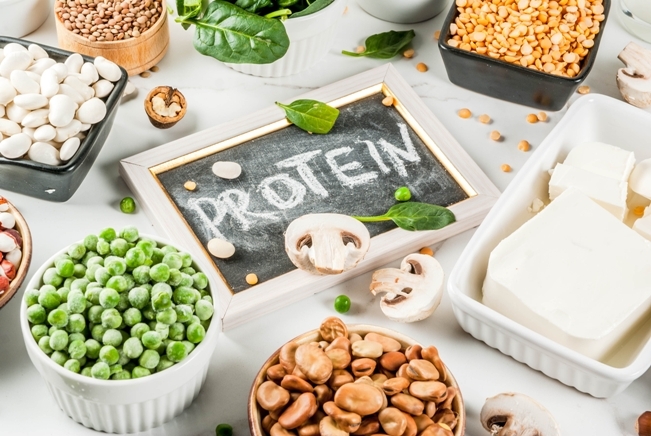
Look around you — there are several diets doing the rounds, out of which a high-protein one is quite popular. Why may you ask? Well, that’s because they encourage more consumption of protein and fewer carbohydrates and fat. What’s more, this diet promises weight loss, enhanced energy, and improved athletic performance. Sounds too good to be true, doesn’t it?
Before we get down to certain things you must consider before going on this diet, we want you to understand the function of protein. It is a critical component to help in the smooth functioning of the body, and is responsible for hormonal balance, and cell repair and maintenance.
Certain studies suggest that high-protein diets are particularly helpful for women, since they help them lose weight while retaining lean muscle mass. They help to decrease hunger, increase satiety, and so much more. But guess what? Like other diets, it isn’t necessary that one diet will work for everyone; it varies from person-to-person.
This diet recommends people to get more than 20% of their total calories from proteins. What this obviously means is reduced consumption of carbohydrates or fats. There is no food that is prohibited on this diet, but it is understood that refined carbohydrates, sugars and fats must be consumed in moderation.
There are no guidelines for meal timings, when it comes to a high-protein diet, but there are a few people who also practice intermittent fasting.

When it comes to weight loss, reducing the number of calories is a given, but that doesn’t mean depriving your body of certain nutrients. Your body must receive a healthy balance of fat, carbohydrates and protein. Moreover, the amount of protein you should eat is linked to various factors, including your age, sex, body size and activity levels.
According to experts, active experts require 1.2-1.7 grams per kilogram of body weight per day. The official recommended daily allowance (RDA) for healthy adults is a minimum of 0.8 g/kg/day. You can check your daily protein intake, using a calorie tracking app or website.

While going on a protein-rich diet can benefit you in several ways, it can also cause various nutritional deficiencies. That’s because it lacks dietary fibre, and that can also cause problems like constipation and other health issues. In fact, dietary fibre is essential to maintain the health of your colon, and reduces inflammation in the body.
There are some versions of high-protein diets that ask people to consume high-fat foods like full-fat dairy, fatty cuts of beef, as well as cured meat. These are often associated with health concerns like heart disease and cancer, and must be avoided.
Yes, it’s true, especially for those who are suffering from chronic problems of the kidney. That’s because the body converts excess protein to glucose, which could cause a rise in blood sugar levels in those who have diabetes.
You can, but make sure you include the foods given below:
Include protein in every meal: Consume lean beef, chicken, or pork, but make sure to also fill your plate with vegetables.
Select Topics of your interest and let us customize your feed.
PERSONALISE NOW
Eat good carbs: You sure can skip eating refined grains or have small quantities, but do get your fill of good carbs from amaranth or quinoa, or replace pasta with spiralized zucchini or carrots.
Don’t skip fats: If butter and cheese are sinful, make sure to use ghee and healthy oils to cook your food. But do not skip out on it in any way!
So ladies, now that you know all about high-protein diets, you can make an informed decision!